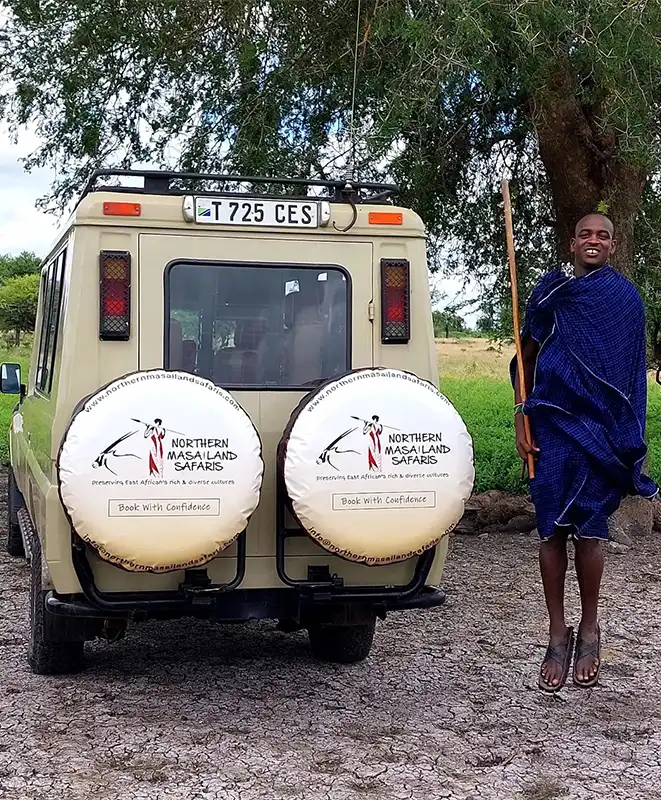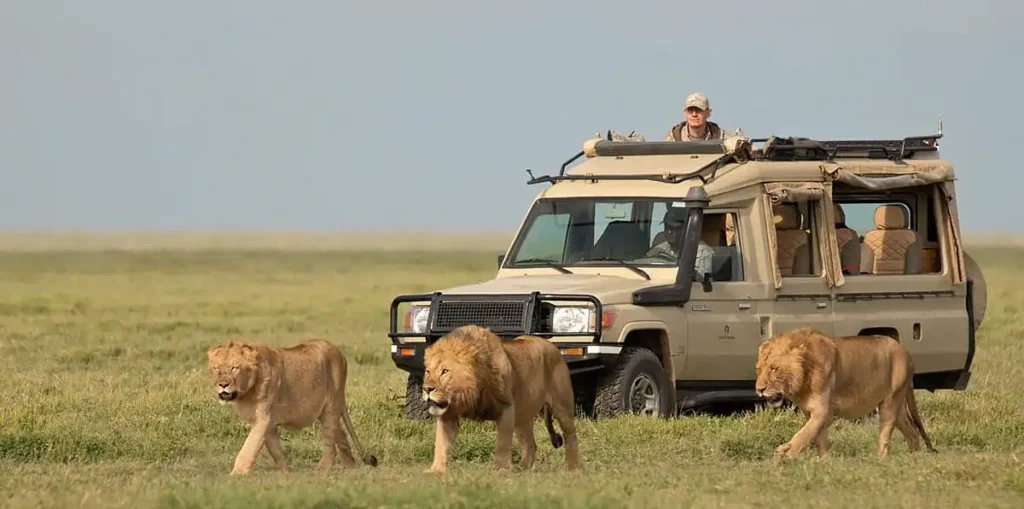The Machame Route is one of the most popular ways to climb Mount Kilimanjaro. Known for its diverse scenery, great acclimatization profile, and higher success rates than some shorter routes, it’s a favorite among adventurous trekkers.
But make no mistake, this is no gentle stroll. Over 7 days (sometimes 6), you’ll navigate rainforests, cross lava ridges, scramble up rocky paths, and finally, trudge through icy winds to reach Uhuru Peak, the roof of Africa.
If you’re after breathtaking views and a higher chance of summiting, Machame might just be your golden ticket. Let’s break it all down.
Scenery, acclimatization, and summit success are the big three reasons climbers choose Machame. Here’s what makes it shine:
“Climb high, sleep low” – The route’s design helps your body adapt to altitude.
Varied landscapes – Rainforest, moorland, alpine desert, glaciers, you get it all.
Higher success rates – Around 85–90% on a 7-day trek.
Adventure factor – Some scrambling and steeper sections make it more exciting.
| Feature | Details |
|---|---|
| Distance | ~62 km (38 miles) one way |
| Duration | 6–7 days |
| Difficulty | Challenging |
| Accommodation | Camping |
| Success Rate (7 days) | ~85–90% |
| Best Time to Go | Jan–Mar, Jun–Oct |
Day 1 – Machame Gate (1,800 m) to Machame Camp (3,000 m)
Distance: 11 km (7 miles)
Hiking Time: 5–7 hours
Terrain: Dense rainforest, often muddy, expect to meet colobus monkeys.
Day 2 – Machame Camp to Shira Camp (3,840 m)
Distance: 5 km (3 miles)
Hiking Time: 4–6 hours
Terrain: Steep ascent through moorland with sweeping views of Shira Plateau.
Day 3 – Shira Camp to Lava Tower (4,630 m) to Barranco Camp (3,976 m)
Distance: 10 km (6 miles)
Hiking Time: 6–8 hours
Highlight: “Climb high, sleep low” day for acclimatization.
Tip: Stay hydrated—this is where some feel the altitude.
Day 4 – Barranco Camp to Karanga Camp (3,995 m)
Distance: 5 km (3 miles)
Hiking Time: 4–5 hours
Challenge: The famous Barranco Wall—a fun scramble with epic views.
Day 5 – Karanga Camp to Barafu Camp (4,673 m)
Distance: 4 km (2.5 miles)
Hiking Time: 4–5 hours
Terrain: Alpine desert—dry, dusty, and windy.
Rest early for summit night.
Day 6 – Summit Attempt: Barafu Camp to Uhuru Peak (5,895 m), then Mweka Camp (3,100 m)
Distance: 5 km up + 12 km down
Hiking Time: 10–14 hours
Terrain: Loose scree, glaciers, and frigid winds.
Reward: Sunrise from Stella Point—pure magic.
Day 7 – Mweka Camp to Mweka Gate (1,640 m)
Distance: 10 km (6 miles)
Hiking Time: 3–4 hours
Terrain: Forest descent—legs will feel every step.
Advantages:
Stunning scenery and diverse terrain.
High success rates with the 7-day version.
Great acclimatization profile.
Disadvantages:
More physically demanding than Marangu.
Fully camping—no huts.
It can be crowded in peak season.
The dry seasons are prime:
January–March: Cooler, fewer trekkers, potential for snow at the summit.
June–October: Warmer, clear skies, but busier trails.
Machame is challenging, think long days, steep sections, and high altitude. To prepare:
Do hikes with a weighted backpack.
Include cardio, stair climbing, and strength training.
Practice slow pacing; altitude rewards the tortoise, not the hare.
Clothing: Layer up—temps can swing from 25°C to -10°C.
Footwear: Waterproof, broken-in hiking boots.
Gear: Quality sleeping bag, trekking poles, headlamp, hydration system.
Extras: Energy gels, blister pads, camera for the jaw-dropping views.
Customise one of our recommended trips or design your own from scratch
or call us on: +255754982525


Book Your Safari Now & Get a Free Masai Culture Tour!
The Maasai are a proud and vibrant tribe known for their distinctive customs and way of life. This free tour offers a unique opportunity to interact with the Maasai people.
Still Have Questions? We’re Here to Help! Contact Us
To secure the best lodges and ensure park availability, we recommend booking at least six months in advance, especially if you’re planning to travel during peak seasons, such as June to October or December to February.
It’s simple. Reach out to us directly through our website, email, or WhatsApp. Let us know your:
Preferred travel dates
Group size
Budget and interests
We’ll send you a customized itinerary within 24–48 hours.
We’ll need your:
Travel dates (fixed or flexible)
Number of travelers (adults and children)
Safari preferences (e.g., luxury, mid-range, or budget)
Activities you’re interested in (e.g., game drives, hot air balloon, cultural visits)
To confirm your safari, we ask for a 30–50% deposit depending on the itinerary. The remaining balance is due 30 to 45 days before your safari begins.
Yes, it’s highly recommended. Your policy should cover medical emergencies, trip cancellation, and baggage loss.
A 30% to 50% deposit is required to confirm your safari booking.
The balance must be paid in full no later than 30 to 45 days before the safari start date.
Bookings made within 30 days of the safari require full payment at the time of confirmation.
We accept the following payment options:
Bank wire transfer (details provided upon request)
Credit/Debit card (processing fees may apply)
Mobile payment options are available in Tanzania
USD ($) is the preferred currency for all transactions
Please note: All bank charges and currency conversion fees are the responsibility of the client.
If you choose to cancel your safari, the following refund terms apply based on the number of days before your safari start date:
| Notice Period Before Travel | Refund on Total Payment |
|---|---|
| More than 60 days | 90% refund |
| 45 – 59 days | 75% refund |
| 30 – 44 days | 50% refund |
| 15 – 29 days | 25% refund |
| Less than 15 days | No refund |
All refunds exclude transaction, bank, and administrative fees.
No refunds will be issued for no-shows, missed departures, or unused services once the safari begins.
In the unlikely event that we must cancel your trip due to unforeseen circumstances (e.g. natural disaster, political instability, or other force majeure events), you will be offered:
A full refund, or
The option to reschedule your safari at no extra cost
Date or itinerary changes are allowed free of charge up to 30 days before departure, subject to availability.
Within 30 days, amendments may incur extra charges based on supplier policies (lodges, airlines, etc.).
All approved refunds are processed within 14 business days.
Refunds are returned using the same method of original payment, unless otherwise agreed.
Passport Validity: Must be valid for at least 6 months from your entry date into Tanzania, with at least two blank pages.
Tourist Visa: Required for most nationalities. You can:
Apply online via the official Tanzania Immigration website: https://visa.immigration.go.tz
Or get a visa on arrival at major airports (Kilimanjaro, Dar es Salaam, Zanzibar)
Cost: Typically $50 USD, $100 USD for U.S. citizens (subject to change)
Tip: We recommend applying online at least 2–3 weeks before travel for faster processing.
Yellow Fever Vaccination:
Required only if you are arriving from or transiting through a yellow fever–risk country (e.g., Kenya, Uganda, Ethiopia).
You must carry your Yellow Fever certificate if applicable.
Recommended Vaccines:
Tetanus, Hepatitis A and B, Typhoid, and COVID-19 (not mandatory but encouraged)
Malaria Prevention:
Tanzania is a malaria-risk zone; consult your doctor for suitable anti-malarial medication.
Use mosquito repellent and wear long sleeves at dawn/dusk.
Travel insurance is mandatory when booking with Northern MasaiLand Safaris. Your policy should cover:
Medical emergencies and evacuation
Trip cancellation or interruption
Lost or delayed baggage
COVID-19-related delays (if applicable)
You must provide proof of insurance before arrival.
Main Airports:
Kilimanjaro International Airport (JRO) – most common for Northern Circuit safaris
Julius Nyerere International Airport (DAR) – for southern Tanzania or Zanzibar connections
Zanzibar Airport (ZNZ) – for beach holidays
Domestic Flights: We can book internal connections (Arusha to Serengeti, Zanzibar, etc.) as part of your itinerary.
Currency: Tanzanian Shilling (TZS), though USD is widely accepted.
Cards: Credit/debit cards accepted at most lodges (some with surcharges), but carry cash for tips, local markets, and small purchases.
ATMs: Available in major towns (Arusha, Moshi, Zanzibar), but not in national parks.